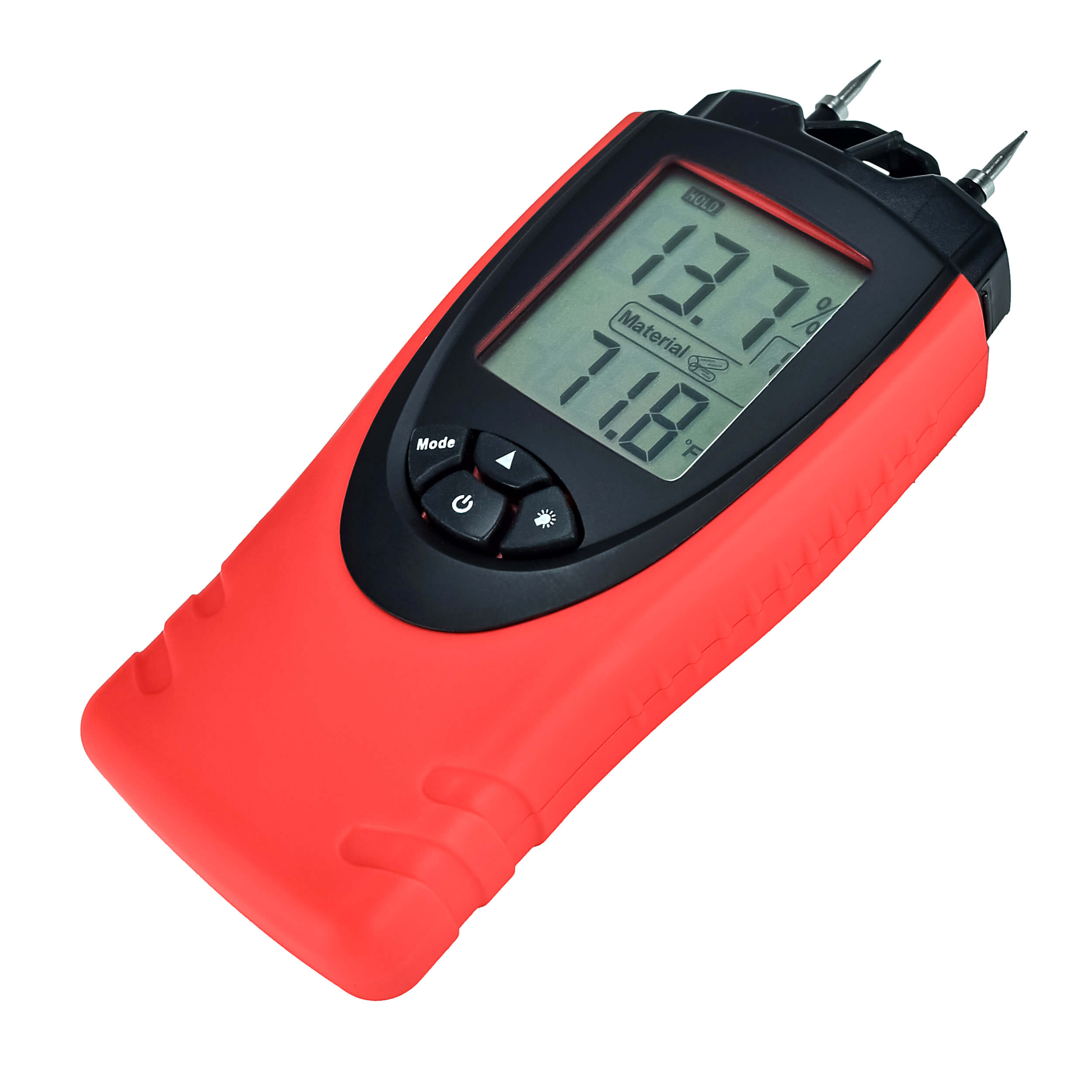Moisture Meter Reviews: Contrasting the most effective Versions for Professional and DIY Use
Moisture Meter Reviews: Contrasting the most effective Versions for Professional and DIY Use
Blog Article
The Ultimate Overview to Moisture Meters: A Comprehensive Review and Just How They Can Conserve You Money
In the realm of structure upkeep, building, and different industries, the importance of accurately gauging dampness levels can not be overemphasized. Moisture meters function as indispensable tools in finding and keeping an eye on moisture web content in materials, aiding in stopping expensive damages and making certain the high quality of products. Understanding the subtleties of different kinds of wetness meters, their applications, and the potential cost-saving advantages they provide can be a game-changer for experts and businesses alike. Uncovering how these tools can not only simplify processes yet likewise add to monetary cost savings is a journey worth starting.
Sorts Of Moisture Meters
One usual kind is the pin-type dampness meter, which gauges the electric resistance between two pins placed right into a product. Pinless dampness meters, on the other hand, use electromagnetic sensing unit plates to check a bigger area without triggering damages to the material's surface area.
Moreover, there are additionally specialty wetness meters designed for details products like hay, dirt, or grain. These meters give precise dampness analyses customized to the unique residential properties of the product being examined. Infrared wetness meters determine the thermal buildings of a product to establish its dampness web content non-invasively, making them valuable for applications where pin or pinless meters might not be ideal. Recognizing the various sorts of wetness meters offered can assist markets select the most appropriate tool for their details dampness dimension requirements.

Benefits of Making Use Of Moisture Meters

Furthermore, using wetness meters can cause raised energy efficiency. By determining locations with high wetness degrees, such as leakages or inadequate insulation, adjustments can be made to improve energy conservation and decrease utility expenses. In farming setups, wetness meters play a critical duty in optimizing crop yields by making it possible for farmers to monitor dirt dampness degrees and make notified irrigation decisions. Overall, the benefits of using moisture meters span throughout different industries, providing economical solutions and promoting better quality assurance practices.
How to Choose the Right Moisture Meter
Picking the proper wetness meter involves taking into consideration crucial elements such as material compatibility, dimension range, and calibration precision. When selecting a moisture meter, it's necessary to make certain that the meter appropriates for the particular product you will be testing. Various materials have differing electrical properties that can influence moisture analyses, so selecting a meter made for your material is important for precise results. Additionally, consider the dimension variety of the wetness meter. Make certain that the meter can identify wetness degrees within the range needed for your applications. Calibration why not try these out precision is one more critical aspect to remember (Moisture Meter). Choose a dampness meter with reputable calibration to ensure constant and exact readings. Some meters may call for periodic calibration changes, so understanding the calibration procedure is essential. By thoroughly reviewing these factors, you can select a dampness meter that fulfills your needs and offers exact dampness measurements for your jobs.
Appropriate Strategies for Moisture Meter Use
To make certain precise moisture analyses and take full advantage of the effectiveness of a dampness meter, utilizing proper methods is important. When making use of a pin-type wetness meter, put the pins or probes into the product being checked until they make full contact. By complying with these proper methods, users can depend on their moisture meter to supply trustworthy wetness degrees, helping in protecting against pricey damages or guaranteeing quality in different applications.

Cost Savings With Moisture Meter Applications
Just how can the tactical application of moisture meters lead to significant price savings throughout various markets? Dampness meters play a vital role in expense financial savings by avoiding possible damages and guaranteeing quality assurance in different markets. In the farming industry, wetness meters help in determining the optimal time for gathering plants, preventing over-drying or excess dampness that can influence the end product's high quality. This specific monitoring helps farmers prevent unneeded losses and optimize their return.

In addition, in the food processing market, wetness meters are necessary for checking item top quality and making certain conformity with safety and security laws. By properly gauging dampness web content in foodstuff, suppliers can stop wasting, preserve quality, and reduce waste, resulting in significant cost savings. Overall, the critical application of dampness meters is a useful investment that can bring about significant cost reductions and improved performance throughout different her latest blog industries.
Verdict
In verdict, dampness meters are important tools for gauging and discovering moisture degrees in different materials. By making use of the ideal wetness meter and following correct techniques, customers can successfully avoid costly problems triggered by excess dampness. Purchasing a high quality moisture meter can cause significant price savings over time by determining possible problems early on and allowing prompt remediation. Inevitably, wetness meters are essential tools for maintaining the stability and long life of structures and products.
Wetness meters offer as indispensable tools in finding and monitoring moisture material in materials, assisting in protecting against costly damages check this and making sure the top quality of items. Infrared dampness meters measure the thermal homes of a product to establish its dampness web content non-invasively, making them useful for applications where pin or pinless meters may not be suitable.Moisture meters provide vital benefits in precisely monitoring and assessing dampness degrees in diverse materials and atmospheres. In agricultural settings, moisture meters play an essential role in enhancing crop yields by enabling farmers to monitor soil dampness degrees and make notified irrigation decisions.In final thought, wetness meters are valuable tools for gauging and detecting dampness levels in different materials.
Report this page